I have made making polycarbonate windshields and windows my career, and I couldn’t be happier. I have grown up around thermoforming various plastics, but nothing compares to polycarbonate – and nothing even comes close working with high optic grade polycarbonate, especially in heavier gauges. I imagine the most challenging aspect is taking a heavy gauge plastic that does not want to be heated, let alone put into a complex 3D shape, and not only making it stable and stress-free in that shape, but making it optically correct for a driver or operator. The most enjoyable aspect is taking that optically correct heavy-gauge windshield or window – and selling it to that driver or operator. And while I enjoy selling my SHIELDS® Windshields to customers over my few competitors that attempt to make optically correct polycarbonate without stress and full geometric shape (is it too arrogant to say that when I go head-to-head with any other polycarbonate thermoformers they cannot compete with my quality and consistency. They can only beat me on price, and I never apologize for producing the premier polycarbonate windows in the world and pricing my SHIELDS® windshields as such,
 but what I truly enjoy the most is getting my SHIELDS® windshield to replace a currently used (often broken) glass windshield. Because when that happens, I know I have done my job: everyone knows about glass, but few know the overwhelming benefits of a SHIELDS® polycarbonate windshield – so I am an educator more than a salesman.
but what I truly enjoy the most is getting my SHIELDS® windshield to replace a currently used (often broken) glass windshield. Because when that happens, I know I have done my job: everyone knows about glass, but few know the overwhelming benefits of a SHIELDS® polycarbonate windshield – so I am an educator more than a salesman.
To me, there are three main aspects when educating people on polycarbonate – in particular my SHIELDS® line of windshields, windscreens, & windows: What do they know about glass? What do they really know about polycarbonate? And why SHIELDS® offers polycarbonate windows unmatched worldwide.
So, I start with glass – and I ask what they like about having a glass windshield (with the only real answer is surface hardness – polycarbonate beats glass in every other category). I get various answers, but often they come down to these four: It came with the car/truck/excavator/loader, etc… It’s clear and/or not distorted. It won’t scratch. Don’t have to take any special precautions to care for it.
Ok, so then I ask what they don’t like about using a polycarbonate windshield (not unusual it is here I have to offer additional ‘names’ for polycarbonate because most people lump all plastics together – I will address these names in a moment and show how this helps educate them). Again, the answers vary (depending on the level of knowledge or experience the person has with plastics) and nearly all have to do with a cousin or an uncle that once tried to use Plexiglass® to replace a busted window in his garage door or a buddy that had a used bass boat with a cheap piece of plastic glass or my brother-in-law, well ex-brother-in-law, had a piece of that Lexan® and we shot it – it ain’t bulletproof…
After that the reasons are near all the same: It scratches, it’s distorted, it’ll yellow in the sun, it doesn’t fit right, and its cheap plastic. Honestly, I love hearing all these – it reminds me of the shoe company in America at the turn of the 20th Century – a forward-thinking executive had the idea of sending his most seasoned salesman to the heart of Africa to drum up sales. Now after a few months and no communication, he decided to send another salesman, a young rookie. Not long after the rookie boarded the ship, they finally received a telegram from the senior salesman: “Covered nearly every square mile of the land, no one wears shoes here, I’m coming home.” Well, the executive was bummed but figured it was worth a try and his youngster would soon learn the same and head home. However, not days after he arrived in Africa, the young rookie telegraphed back to the company: “This is fantastic! No one wears shoes here – send me as many pairs as you can!”
Well, when I see a glass windshield and/or hear why they don’t like cheap plastic, I don’t see a satisfied glass customer, I see an uneducated driver or operator – and I cannot wait to teach them.
The first thing I tell them is that unfortunately, polycarbonate is certainly not cheap – and then begins to weed through polycarbonate by name. Many people will use the word Lexan® or some may use Tuffak® when referring to polycarbonate – and they are not incorrect – those are brand names of polycarbonate – I often use Bud Light and Coors Light as examples – they are both beers. I have even had people argue with me over the fact they don’t like polycarbonate, but they do Lexan® – after a pause, I bring up the beer thing again…
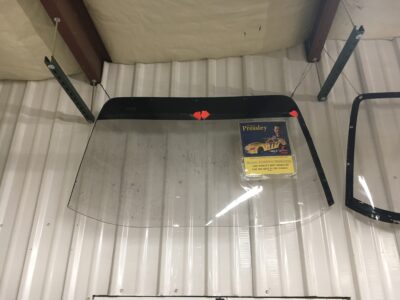
The first SHIELDS® windshield hangs in the factory to this day.
I will get several people asking if I sell Plexi or Plexiglass® windshields. I say, do you mean acrylic (which Plexiglass® is a brand of acrylic more on acrylic in another blog) Now that answer ranges from, “No, I mean plexi, the bulletproof stuff” – which means a longer education session – to “Well, I don’t know” – which means I have a focused student! I had an offshore boat customer – excellent customer and boat builder – tell me he wanted bulletproof windows for his V hull boat. I explained to him that while ½” polycarbonate is extremely impact resistant, it is not bulletproof; however, it would do the job for him on his 300+ mph boat with twin Huey helicopter turbine engines on the back. Not long after setting the world speed record, he called to say they did a special on him on TV, and how I could watch it. It was a great special – right up to where they asked if he was afraid looking through his glass windshield (which is a compliment – my SHIELDS® windshields are often mistaken for ‘glass’ – especially if a drag car runs in a series that requires ‘stock glass’); well to answer the question, he simply slid across the boat’s deck and thumped the outside of the windshield and said, “nope – I got bulletproof plastic glass right here”! I knew I had to up my teaching game!
When I first went door to door in Mooresville, North Carolina, in 2000 selling my SHIELDS® line to the NASCAR world – I quickly learned there were many different ways in which polycarbonate was named, and, oh, how poor the quality of the polycarbonate windows they were using. Since it was relatively new to the sport, some teams had early on used flat sheet from Lowe’s or Menards. Some still must by the looks of the horrible ‘flat’ windshields in NASCAR today – I do not produce for them anymore. They would rough cut them and force them into the opening and bolt down. They told me they knew it was safer but couldn’t see (distortion) and could hardly clean ‘em “cuz they hazed up immediately!” One crew chief (yes, I asked for and was introduced to the crew chief on nearly every cold call that week) said, we use that Lexan® glass from the store but didn’t like it – but he did like the looks of my ‘different’ glass I had – I had a sample
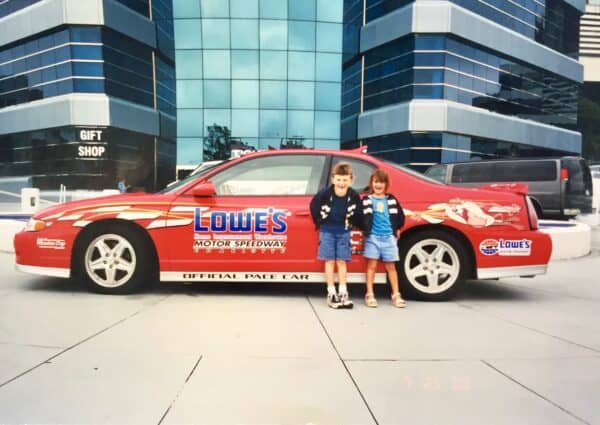
My son and daughter cheesin’ at Charlotte Motor Speedway on the same trip.
SHIELDS® polycarbonate Taurus windshield, formed to perfect shape and coated with an early version of our SUPERCOAT™ hard-coat. I explained it was the same Lexan® ‘glass’ he had but with a few critical upgrades. He then snickered a bit and said he better stand back so he doesn’t accidentally spill his coffee on it and ruin my show glass. As we stood there in the front yard of the Jasper Motorsports shop, with my son propping up the SHIELDS® windshield (he was about the same height as the window then and my wife was juggling my daughter in one hand and our brochures in the other), without thinking really, I took my coffee I was drinking and chucked it on the window – startling both the crew chief and my son! But I knew what would happen, the coffee rain off my SHIELDS® better than water on a Rain-X treated glass windshield, whisking away as if nothing was ever on there. The crew chief’s eyes got real big, then he grinned and bought the first SHIELDS® windshield for NASCAR! This happened before I got an ‘official’ Ford part number, but that is an entirely different story. That windshield ran at Atlanta a couple of weeks later. I still have that windshield hanging in my building with Robert Pressley’s autograph. The crew chief was so impressed before we left his shop to head to Robert Yates (wow, what a great customer “in the day!”) he phoned his brother and another buddy opening all the Ford shop doors – and even Joe Gibbs racing, telling them about ‘racingshields’ new glass material! That was the beginning of educating the true ‘stars’ of NASCAR in my book – the parts managers!!!
So, once we establish that when talking about a SHIELDS® windshield or window – it is simply a formed and post-coated piece of polycarbonate: Lexan®, Tuffak®, poly, plexi, Plexiglass®, ‘glass’, acrylic, plastic, or any other name we will ‘answer’ to – I can then proceed to educate them on why my SHIELDS® line of formed and SUPERCOATED™ polycarbonate are anything but simple, cheap, or ‘plastic’. SHIELDS® windshields are true performance and safety-enhancing parts for heavy equipment, boats, race cars, or anything else that truly wants the SHIELDS® advantage – and I have Ray Evernham to thank for ‘forcing’ me to learn to educate people on how a windshield should be looked at as a performance part, not just a ‘part’ of the vehicle – but that is another story.
Stories from a man doing business,
Brad
President – SHIELDS® Windshields
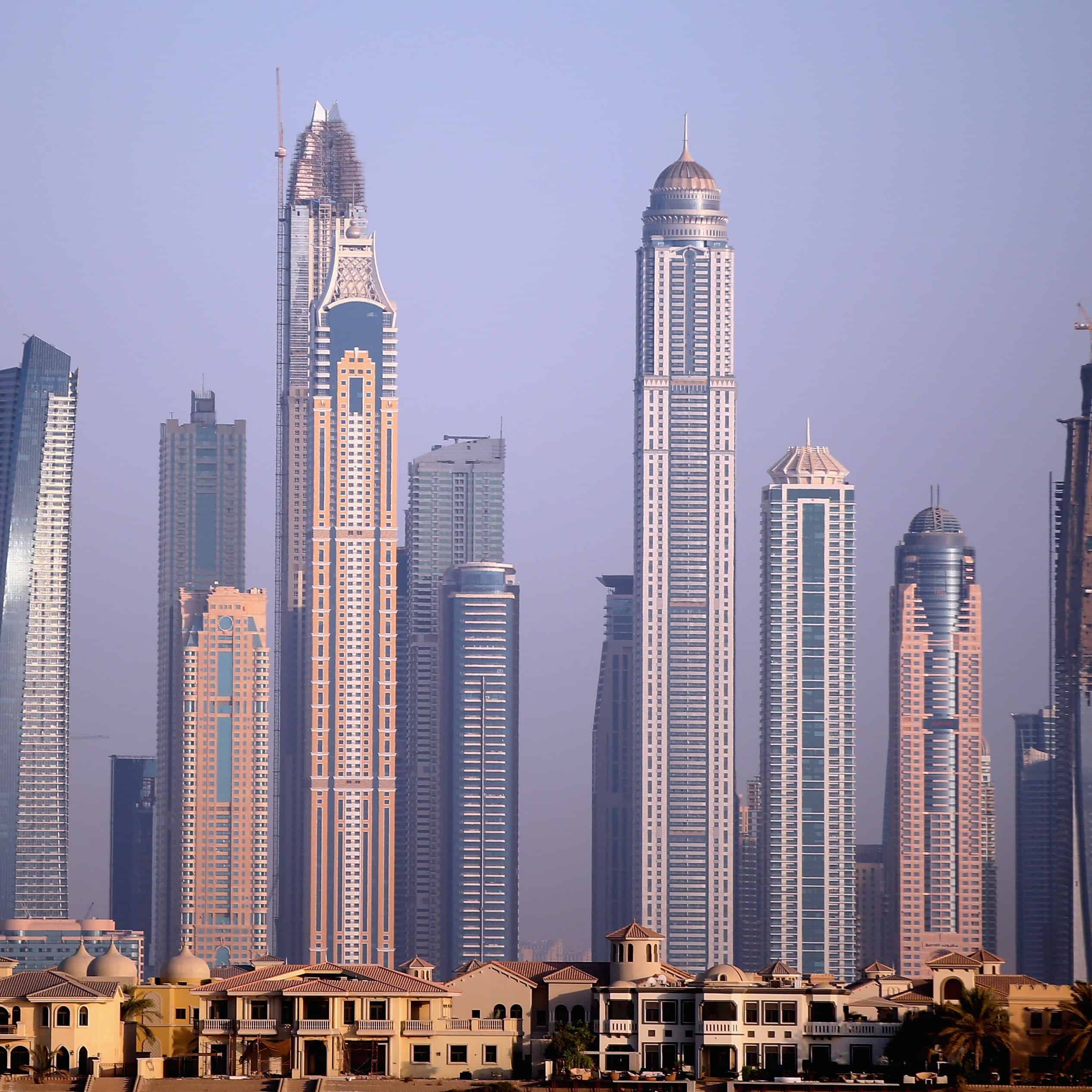 Polycarbonate is a unique material that is 260X stronger than glass, but yet can looks so much like glass people get them confused! Being strong is awesome, but what makes it so strong? I want to quickly explain what gives polycarbonate (Lexan®) its’ strength. It’s all about being flexible!
Polycarbonate is a unique material that is 260X stronger than glass, but yet can looks so much like glass people get them confused! Being strong is awesome, but what makes it so strong? I want to quickly explain what gives polycarbonate (Lexan®) its’ strength. It’s all about being flexible!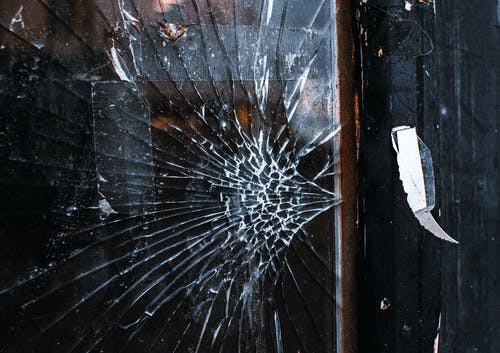
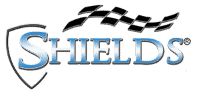

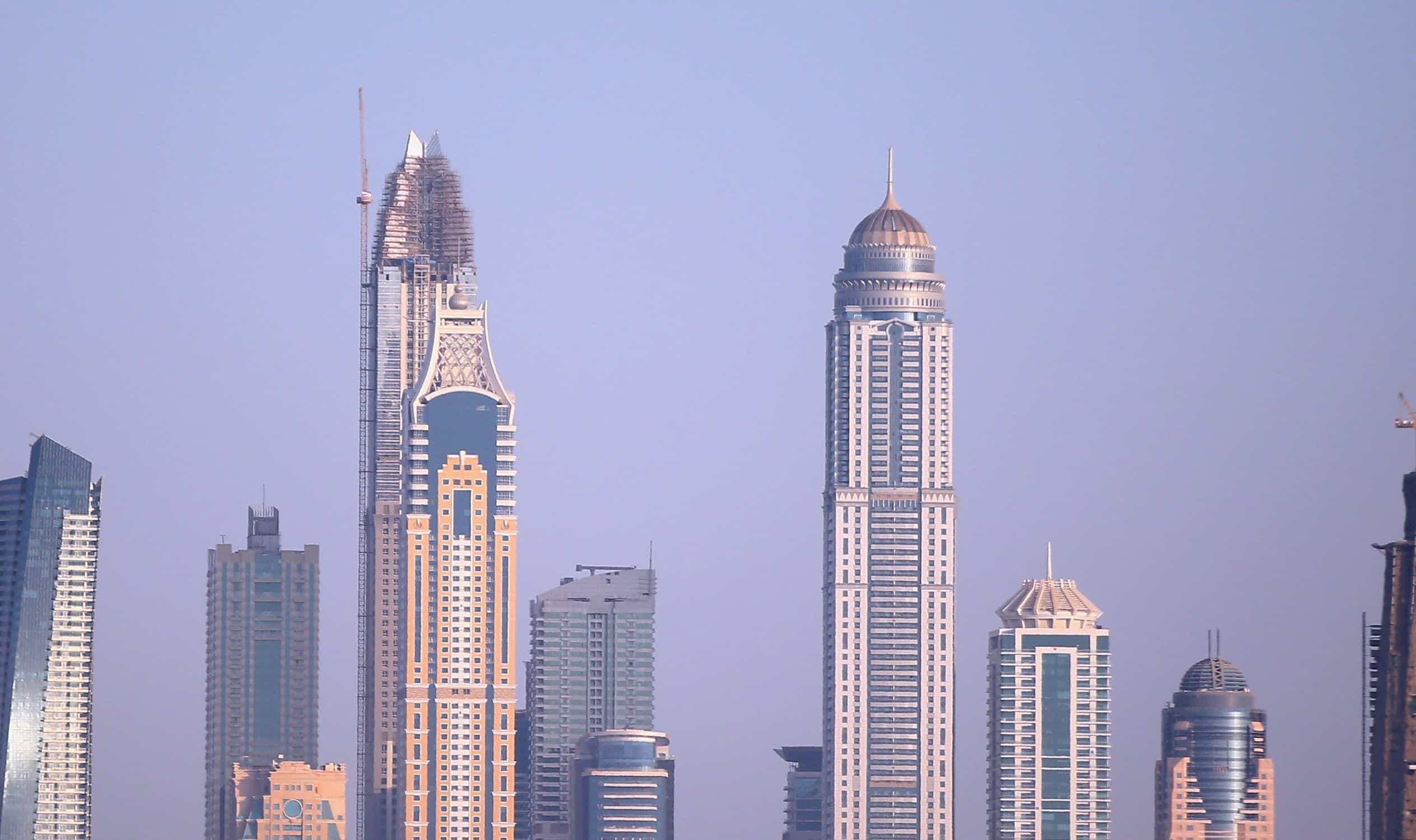


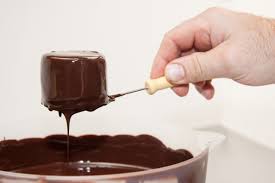
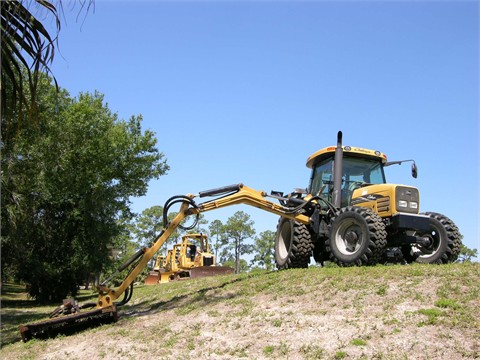

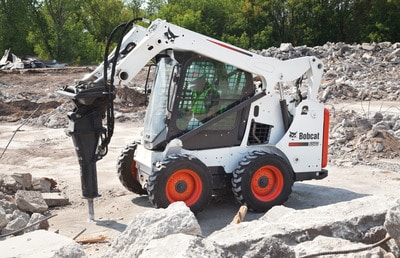
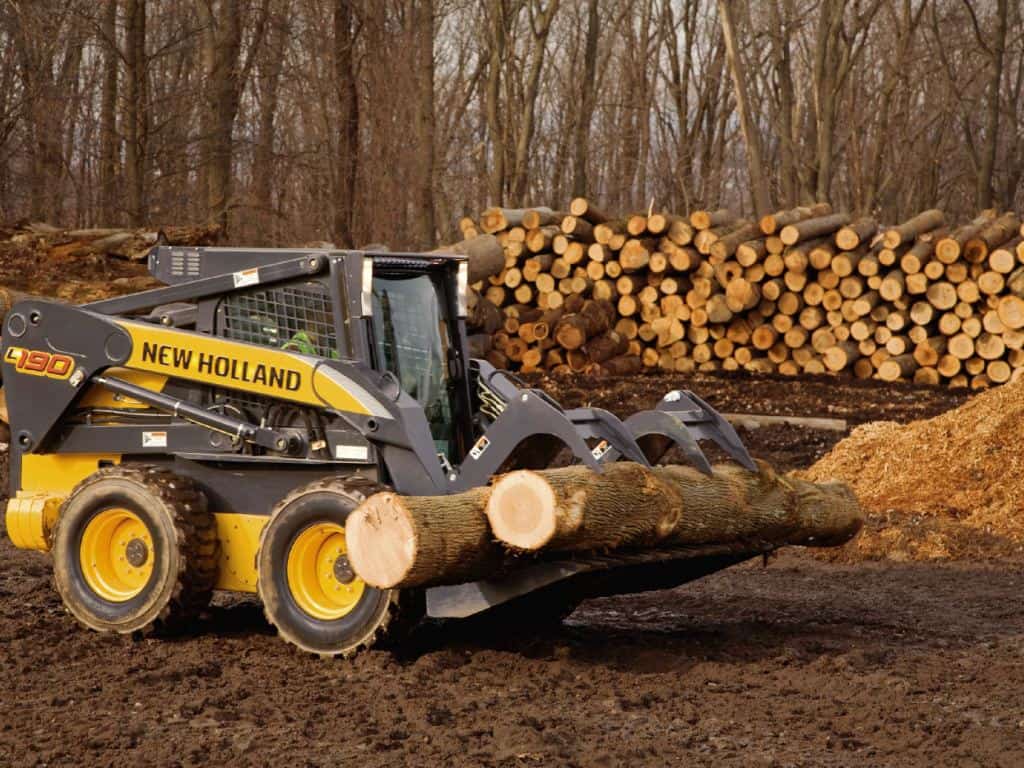

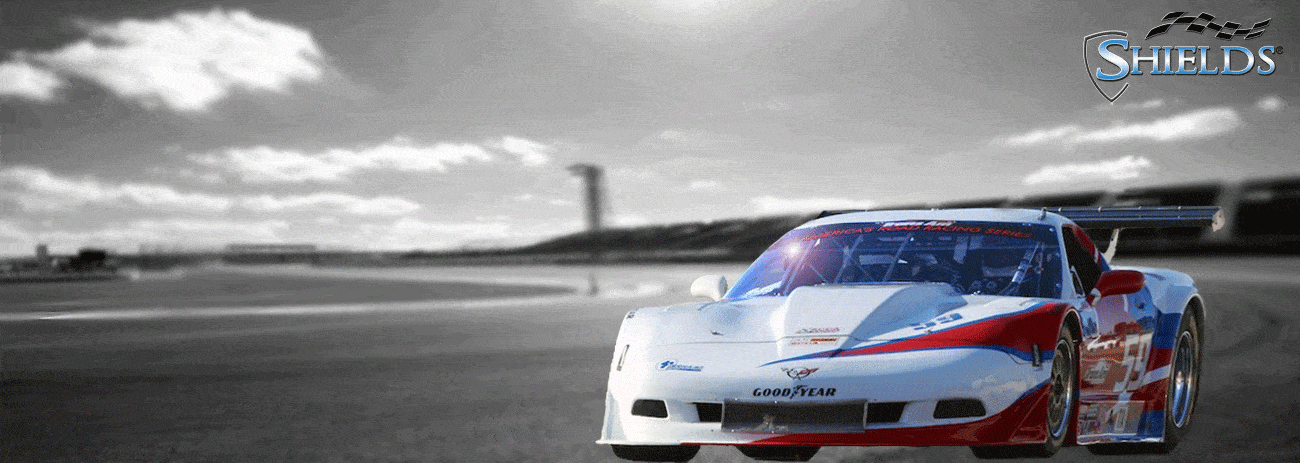
 but what I truly enjoy the most is getting my SHIELDS® windshield to replace a currently used (often broken) glass windshield. Because when that happens, I know I have done my job: everyone knows about glass, but few know the overwhelming benefits of a SHIELDS® polycarbonate windshield – so I am an educator more than a salesman.
but what I truly enjoy the most is getting my SHIELDS® windshield to replace a currently used (often broken) glass windshield. Because when that happens, I know I have done my job: everyone knows about glass, but few know the overwhelming benefits of a SHIELDS® polycarbonate windshield – so I am an educator more than a salesman.
